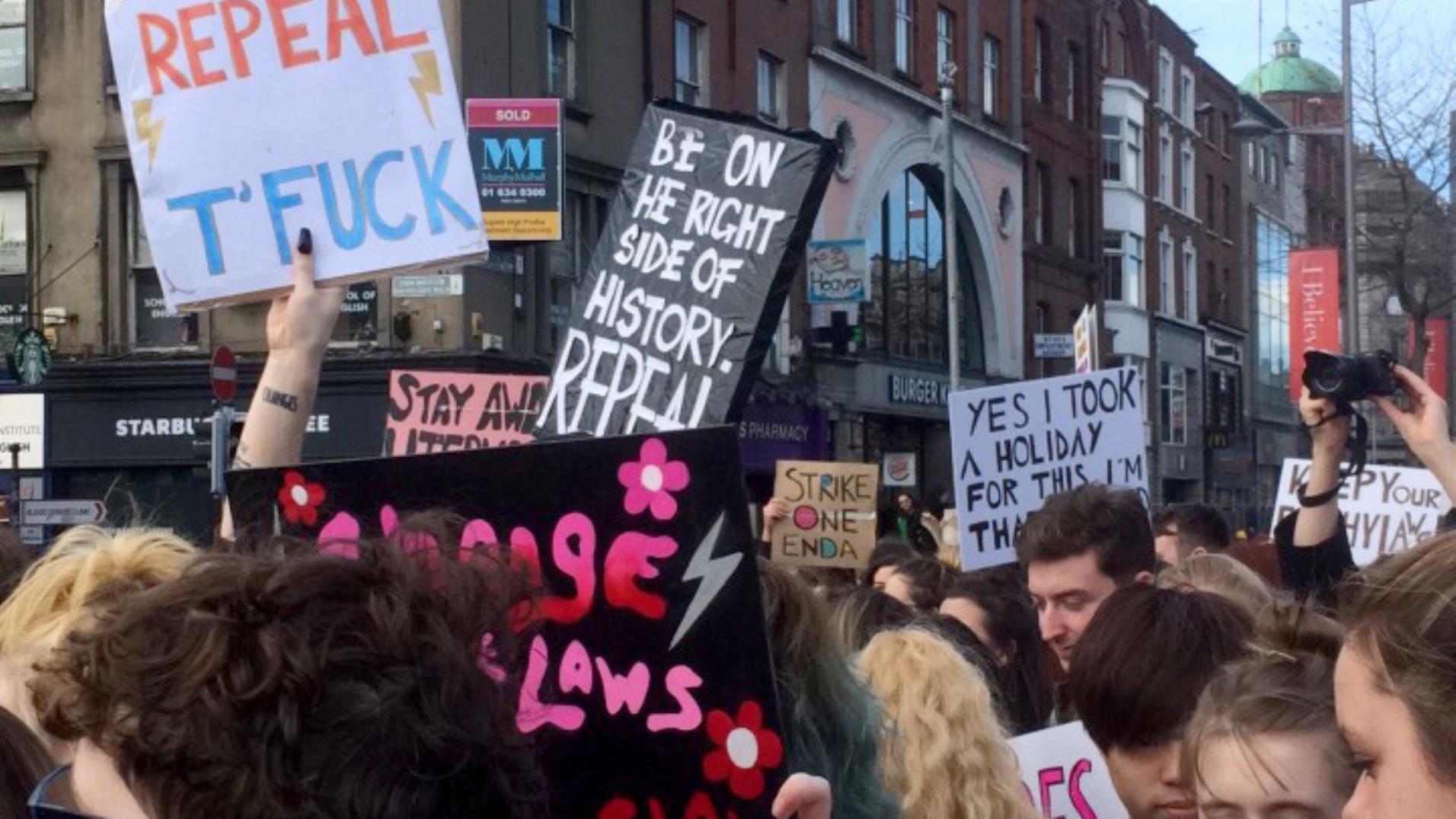For over 50 years Northern Irish women have languished behind the rest of the UK when it comes to accessing safe, legal, free abortions, but that might just finally come to an end. Today, London’s Supreme Court will hear a landmark appeal against Northern Ireland’s strict, draconian abortion laws, where termination of pregnancy is classed as a criminal offence punishable with up to life imprisonment. Today’s appeal, which takes place just a week after Belfast’s rally for choice, will argue that the current laws in place, which do not allow terminations even on the grounds of fatal foetal abnormality, are incompatible with international human rights.
Over a course of around three days, the Supreme Court will make a decision which could drastically improve the lives of every woman in Northern Ireland, who are currently forced to travel to England for a termination, and can cost thousands of pounds for the trip (and, before the government changed the law in June of this year, for the procedure too). It’s a stressful, expensive and traumatic experience for women, all of whom should be entitled to NHS treatment and safe, free terminations, in line with the rest of the UK.
Yesterday Minister for Women and Equalities Justine Greening announced a plan to help women in Northern Ireland with their travel costs, and support low income women from the area who would receive state support for the costs of seeking a free NHS abortion. The plan, which comes after a Labour manifesto promise to give NI equal abortion rights, would also give Northern Irish women entitlement to a consultant in England, contraception and testing for sexually transmitted diseases.
And, if that’s not grounds enough for the world’s longest, most overdue, most West Belfast ‘yeo’ in the world, today Northern Ireland’s abortion rights campaign will receive the Liberty Award, honouring their fifty years of activism.
Caoilfhionn Gallagher, a lawyer with the London-Irish Abortion Rights Campaign, said: “We are honoured to receive this award on behalf of the Abortion Rights movement. For half a century women in Northern Ireland have been treated as second class citizens when it comes to their reproductive rights. This year, that has started to change.”
“No longer should Northern Irish women be stigmatised and criminalised.”
If today’s Supreme Court decision goes to plan, along with Justine Greening’s proposed changes to the law are adopted by Stormont’s Assembly (big ask), it would mean that women in Northern Ireland could finally be given the same respect and access that they deserve, and would go partly towards lifting the systemic misogyny that’s prevented them from the right to choose for so long.
